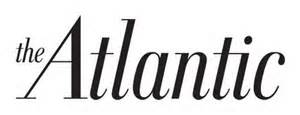|
New clients come to me for many reasons, but one of the most common is for help with career, writing, or life ennui.
"I just don't know what I want to do," is the phrase, but it's said with the "do" in big, capital letters as if there is one, single mandate for every life. After some discussion and guided exercises, I ask to re-phrase that question. How would it feel, I ask, if instead of "what do I want to do," the question is "what do I want to do next?" Challenge: Make a list of several options, from the ridiculous to the mundane. Circle the ones where you want to next put your energy. It's summer residency season for creative writing graduate students, and I am often asked about the benefits of a Masters Degree in Fine Arts. As an alumni of one program and the former administrator of another, I always respond with a question: What are your goals?
There are generally two schools (ha!) of though on the topic. First, that an MFA is two years of dedicated apprenticeship that will ultimately yield better prose. And alternatively, that writers should spend time...well, writing, and the act of writing will yield the same end result. So back to my question. What are your goals? Do you want to teach at an institution of higher education? If so, you will need a minimum of an MFA. I say minimum because while it used to be that an MFA was universally considered a terminal, practitioner's degree, there is a trend of PhD programs in the discipline now. Savvy students will pay attention to this trend because all other things being equal, a PhD usually trumps an MFA for a hiring committee. If your goal is not to teach, but solely publish, then an MFA is not always necessary. You really just need to write something good and cultivate contacts to market your material. Many writers do this without an advanced degree. I will confess that while my personal MFA experience was the impetus I needed to take myself seriously as a writer, it has been seven years since graduation, and I am still re-paying my student loans. That stings. The MFA experience made me a better writer and gave me a community of like-minded people, but it was not directly responsible for any publishing success. I absolutely do not regret the experience, but is the experience necessary? No. So the short answer is that I don't know. I can argue both sides. That all said, it is imperative to apprentice in some form, and MFA programs are a structured way to do so. The rigor, the community, and the individual instruction can elevate your material to exquisite heights, and the contacts you make have the potential to advance you professionally. But if you opt for this path, do your research. Some programs are academically challenging, and some are less so. Talk to alumni and current students before you commit. Ask to read creative theses from graduating students and, better yet, attend readings from alumni. Ask yourself "does this represent the type of work I want to produce?" In the end, it's all about writing something good. How you do it is up to you. Takeaway: Articulate your goals, and you will get a clearer sense of the best path. "Art" doesn't immediately translate to "career," and because of this, there is often a disconnect between professional artists and the general public.
I get it. I do. Music, writing, scultpure, paper-cutting, photography, and other fine arts are, for most people, a hobby. It's a common thought process, and I get it. I get it, but when talking with a person who pays a mortgage from a fine arts vocation, here is some basic etiquette. DON'T invite a musician or a photographer to a party and add "bring your camera/guitar--it'll be fun!" It might be fun for you, but it probably will be an extension of a work day for the artist. You would never invite an accountant or a surgeon to a gathering and say "bring your calculator" or "bring your tools!" DON'T ask a writer to write your life story for free, offering to split any future book proceeds. What you are asking is for months of work, research, and publication attempts--all with no guarantee of payment. Likewise, don't press your material into the hands of a writer, asking for help, feedback, editing, or "just for you to read." If the project is important to you, offer to pay for it. DON'T offer to pay by "passing the hat" or in food. Until the mortgage company accepts those terms, it's difficult for an artist to accept them. (Only slightly better is "We can't pay you, but the exposure will be fantastic!" More often than not, it won't be fantastic.) DO recognize that artists have chosen a career path that is based upon their skills and improved by practice, much like any other profession. And like any other profession, it is work. It is a business with long hours, marketing plans, financial projections, branding, and developing a customer base. |
About Shonna.
As a writer living in my home state of Maine, I sling words for cash, compassion, or glory. I also teach, tell groups how to improve systems, and offer development consultation. I also wear eyeglasses. Generally, big ones. Archives
April 2016
|

 RSS Feed
RSS Feed



